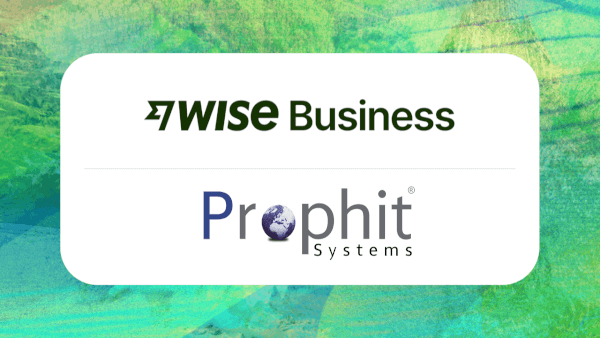Can a Sole Trader Have Employees? Rules & Guide
Unsure if a sole trader can hire employees? Learn the rules, legal obligations, and benefits of employing staff as a sole trader in Australia.

Thinking of starting a business in Australia as a foreigner? You’ll need a business visa first. Without one, you won’t be able to legally operate a startup or manage an existing business. The good news is that Australia offers a variety of work and skills-based visas to attract budding entrepreneurs like you.
In this blog, we’ll look at business visa requirements and different business visa types. The aim is to provide you with the information you need to get ahead and achieve your business goals.
| Table of contents |
|---|
Sign up for the Wise Business account! 🚀
Foreign nationals and non-residents cannot engage in business activities in Australia — such as launching a startup or investing in a company — without getting a visa first1.
Attempting to start a business as a foreigner without a visa is against the law and can have serious consequences. It can result in heavy fines and even deportation.
Securing a relevant visa will ensure you don't fall foul of immigration authorities and rules. It will also create the framework for you to legally engage with suppliers, customers, and investors when running your business.
Acquiring an Australian business visa allows you to:
You’ll need to meet specific eligibility criteria and submit the right documents to apply for an Australian business visa. The exact requirements will depend on the visa type, but typically feature:
Certain visas require you to be nominated by the Department of Home Affairs or a state or territory agency. This nomination shows that the government supports your efforts to engage in business activity, such as creating a startup. Foreigners can complete an Expression of Interest (EOI) form9 to formally clarify their interest in being nominated for a skilled visa.
You’ll need to present valid personal documents — a passport with at least 6 months remaining — and strong evidence of your business acumen to get a visa. Authorities typically request things like business plans and proof of job experience when assessing applications.
Many visas require non-residents to have lived in Australia for at least one or two years before applying for a relevant business visa. And while not always mandatory, certain applications require you to demonstrate a certain level of English via approved tests.
For permanent residency visas, a provisional visa is likely to be one of the eligibility requirements. For the Business owner visa (subclass 890) — which recently closed to new applicants — those applying needed one of six relevant subclass provisional visas.
Some visas require you to meet a certain threshold of income or business assets to apply. You’ll also need to present bank statements, etc. to provide that you have sufficient funds to support your business plans in Australia.
Other essentials depending on the visa include:
Additional info: How much money is required for an Australia business visa?
You will have to pay a fee to acquire a visa. The National Innovation visa (NIV), for example, costs AUD 4,8402. The amount you pay will depend on the visa, so check that you can afford to purchase one before applying.
In 2025, securing a business visa in Australia as a foreigner is harder, but not impossible.
One of the most popular routes to acquiring a business visa — the Business Innovation and Investment program (BIIP) — recently closed to new applicants3.
Generally, there are now fewer avenues to getting a visa for a small business after the government shut down several other schemes and confirmed stricter requirements (and numbers) for migration.
The available visa types include:
The National Innovation visa is Australia’s newest visa program2. It replaces the Global Talent visa, which closed in December 2024. The NIV is targeted at exceptionally talented individuals, including entrepreneurs and innovative investors. The bar is high, with the Department of Home Affairs listing four specific priority areas.10
It is also currently an invite-only scheme.
However, you can submit an Expression of Interest (EOI) form with information about your education, qualifications, and employment history. If successful, you will then receive an invitation to apply for the visa.
The permanent Business Innovation and Investment visa11 is still open. There are five sub ‘streams’ that make up this visa, each tailored for a specific type of business activity. These are:
Each of these visa costs AUD 3,400. To get one, you must complete the visa application online and hold a relevant subclass 188 visa for a specific time — from 1 to 4 years. There are other strict financial eligibility requirements, mostly targeted at more affluent investors and business people.
Additional info: The Business Innovation and Investment provisional visa (subclass 188) closed to new applicants on 31 July 20244.
The Temporary Work Short Stay visa12 lets you stay in Australia for up to 6 months to complete work in a “highly specialised” role. This visa is designed for businesses who cannot find the urgent skill sets they need locally.
To apply, you’ll need to demonstrate that you have very specific, sought-after skills and knowledge by showing a copy of your resume, a list of licenses and qualifications, and a reference from an overseas employer. The visa costs AUD 4155.
A regional provision visa is one of the better options for small business owners in 2025. The Skilled Work Regional Provisional visa13 will grant you a 5-year stay in Australia, where you can live and work in a specific region. However, you will still need to be nominated by an agency and be highly skilled. There are also additional requirements for business owners. This visa costs 4,770 AUD.
You can find a full list of working and skilled visas on the Home Affairs website. There are 22 in total, though some may not be currently active, so it is best to check the official website for up-to-date details.
The Australian government recently brought the curtain down on several business visa types. These include:
Unfortunately, it’s now more difficult for aspiring foreign entrepreneurs to establish a foothold in Australia and start a new business.
Some legal experts have also recommended pursuing self sponsorship under the Skills in Demand (subclass 482) visa. However, this complex pathway has very strict requirements, so it’s not an ideal option for most foreigners.
Before you get the ball rolling with a business visa application, you need to take stock and think about the whole process. Taking the time to prepare can boost your chances of getting an invite or approval and avoid delays.
Here’s what you can do:
With Wise Business, users can have accounts in multiple currencies and integrate the tool with your favorite business accounting software where data gets synced automatically. This makes it easier to consolidate, track, and manage business transactions, which can take the hassle out of documentation when expanding business overseas.
What's more, you'll benefit from the following with a Wise Business account:
Sign up for the Wise Business account! 🚀
Getting an Australian business visa in 2025 can be challenging. There’s lots to sort out for an application and a pretty stringent set of eligibility criteria to meet. However, if you do quality for one of the visa subclasses, it is possible to get what you require with careful planning and the right mix of documentation.
Whatever your plans, you will need a valid business visa to establish and grow your startup and other ventures. If you want to know more about the financial side of launching a business, check out our full guide on the costs of starting a business in Australia.
Sources:
*Please see terms of use and product availability for your region or visit Wise fees and pricing for the most up to date pricing and fee information.
This publication is provided for general information purposes and does not constitute legal, tax or other professional advice from Wise Payments Limited or its subsidiaries and its affiliates, and it is not intended as a substitute for obtaining advice from a financial advisor or any other professional.
We make no representations, warranties or guarantees, whether expressed or implied, that the content in the publication is accurate, complete or up to date.

Unsure if a sole trader can hire employees? Learn the rules, legal obligations, and benefits of employing staff as a sole trader in Australia.

Learn how to lodge your BAS in Australia. Our guide covers what to include, from GST to PAYG, key due dates, and best practices to stay compliant with the ATO.

Discover if a virtual assistant is right for your business. This guide covers the types of VAs, their duties, managing them, along with the pros and cons.

Read on how Prophit Systems saved up to 9x on global payroll by switching to Wise Business, saving over 10+ hours a month in admin time.

Essential invoice payment terms for Australian businesses. From Net 30 to PIA, discover best practices to improve cash flow and get paid faster. Read now!

Learn how the OFX business account works, its features, and how it compares to other international payments solutions. Find out more here!